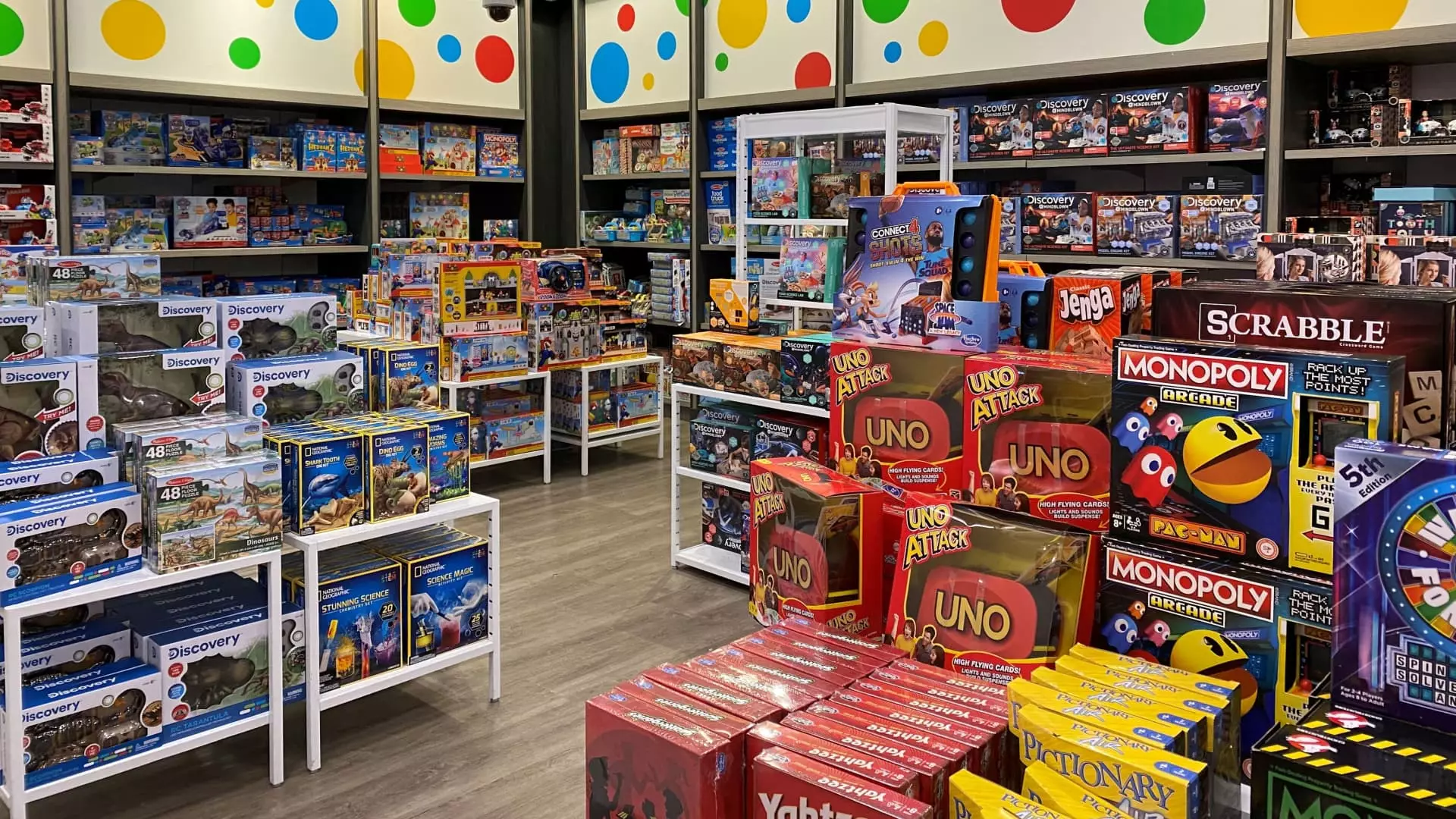The toy industry is currently grappling with an unprecedented crisis as trade tensions escalate, particularly due to President Trump’s heavy-handed tariffs. With giants like Mattel and Hasbro witnessing their stock values plummet, it is alarming to watch how directly the economy can be affected by policy decisions tied to international relations. Companies that once thrived on a foundation of robust supply chains in China are now left vulnerable, as their reliance on these connections becomes a liability rather than an asset. As investors watch stock prices drop, we must ask ourselves: is this the price of a trade war?
The Severity of the Tariff Policy
For context, the latest developments extend beyond industry inconvenience; they represent a fundamental shift in how American businesses strategize and compete. Mattel’s shares dipped to an astonishing new low, while Hasbro suffered similarly, languishing at figures not seen in years. Such a stark decline—27% for Mattel and over 20% for Hasbro—signals not just a temporary setback but an unsettling trend. A staggering 145% tariff on Chinese imports, accompanied by a reciprocal 125% levy from China on U.S. goods, leaves little room for maneuvering. The result? Toy manufacturers find themselves caught between government policies and consumer wallets, with an outcome that could reshape the entire market.
The Consumer’s Burden
As these tariffs tighten their grip, consumers shouldn’t expect to remain shielded from the repercussions. With profit margins for toys hovering in the low single digits, the expectation that companies can absorb such steep tariffs is naive at best. Companies like Mattel and Hasbro are now positioned to raise prices significantly, a move that could see toys becoming double their original costs just as they hit the retail shelves for the back-to-school rush. The implication of these price hikes will inevitably alienate families, making essential items less accessible.
The Real Impact on American Families
It’s essential to consider the broader societal implications of increasing toy prices. The distressing reality is that families will need to adjust their budgets and expectations, leading to a diminished quality of life for many. Education and entertainment intertwined, especially during pivotal back-to-school moments, will take a hit. While the rationale behind tariffs might be framed as a step toward achieving fair competition, the repercussions pose a much darker picture for ordinary families who rely on predictable, affordable costs for essential goods.
A Call for Reflection
While I support fair trade practices and the need to protect American jobs, I can’t help but question the extreme approaches being employed. The blowback is clear, not just for the businesses involved but for the consumers who are caught in the crossfire. One must wonder if this aggressive stance toward China will yield a stronger economy, or instead further alienate the very citizens it aims to support. Voices advocating for a balanced approach to international trade would do well to rise above the noise, pushing for policies that consider both corporate health and consumer well-being in equal measure.

